第118章 39(2)
Then turning toward her daughter:
"What do you want, Henrietta?" she demanded.
"My mother," replied the young princess, "a cavalier has just entered the Louvre and wishes to present his respects to your majesty; he arrives from the army and has, he says, a letter to remit to you, on the part of the Marechal de Grammont, I think."
"Ah!" said the queen to De Winter, "he is one of my faithful adherents; but do you not observe, my dear lord, that we are so poorly served that it is left to my daughter to fill the office of doorkeeper?"
"Madame, have pity on me," exclaimed De Winter; "you wring my heart!"
"And who is this cavalier, Henrietta?" asked the queen.
"I saw him from the window, madame; he is a young man that appears scarce sixteen years of age, and is called the Viscount de Bragelonne."
The queen, smiling, made a sign with her head; the young princess opened the door and Raoul appeared on the threshold.
Advancing a few steps toward the queen, he knelt down.
"Madame," said he, "I bear to your majesty a letter from my friend the Count de Guiche, who told me he had the honor of being your servant; this letter contains important news and the expression of his respect."
At the name of the Count de Guiche a blush spread over the cheeks of the young princess and the queen glanced at her with some degree of severity.
"You told me that the letter was from the Marechal de Grammont, Henrietta!" said the queen.
"I thought so, madame," stammered the young girl.
"It is my fault, madame," said Raoul. "I did announce myself, in truth, as coming on the part of the Marechal de Grammont; but being wounded in the right arm he was unable to write and therefore the Count de Guiche acted as his secretary."
"There has been fighting, then?" asked the queen, motioning to Raoul to rise.
"Yes, madame," said the young man.
At this announcement of a battle having taken place, the princess opened her mouth as though to ask a question of interest; but her lips closed again without articulating a word, while the color gradually faded from her cheeks.
The queen saw this, and doubtless her maternal heart translated the emotion, for addressing Raoul again:
"And no evil has happened to the young Count de Guiche?" she asked; "for not only is he our servant, as you say, sir, but more -- he is one of our friends."
"No, madame," replied Raoul; "on the contrary, he gained great glory and had the honor of being embraced by his highness, the prince, on the field of battle."
The young princess clapped her hands; and then, ashamed of having been betrayed into such a demonstration of joy, she half turned away and bent over a vase of roses, as if to inhale their odor.
"Let us see," said the queen, "what the count says." And she opened the letter and read:
"Madame, -- Being unable to have the honor of writing to you myself, by reason of a wound I have received in my right hand, I have commanded my son, the Count de Guiche, who, with his father, is equally your humble servant, to write to tell you that we have just gained the battle of Lens, and that this victory cannot fail to give great power to Cardinal Mazarin and to the queen over the affairs of Europe. If her majesty will have faith in my counsels she ought to profit by this event to address at this moment, in favor of her august husband, the court of France. The Vicomte de Bragelonne, who will have the honor of remitting this letter to your majesty, is the friend of my son, who owes to him his life; he is a gentleman in whom your majesty may confide entirely, in case your majesty may have some verbal or written order to remit to me.
"I have the honor to be, with respect, etc., "Marechal de Grammont."
At the moment mention occurred of his having rendered a service to the count, Raoul could not help turning his glance toward the young princess, and then he saw in her eyes an expression of infinite gratitude to the young man; he no longer doubted that the daughter of King Charles I. loved his friend.